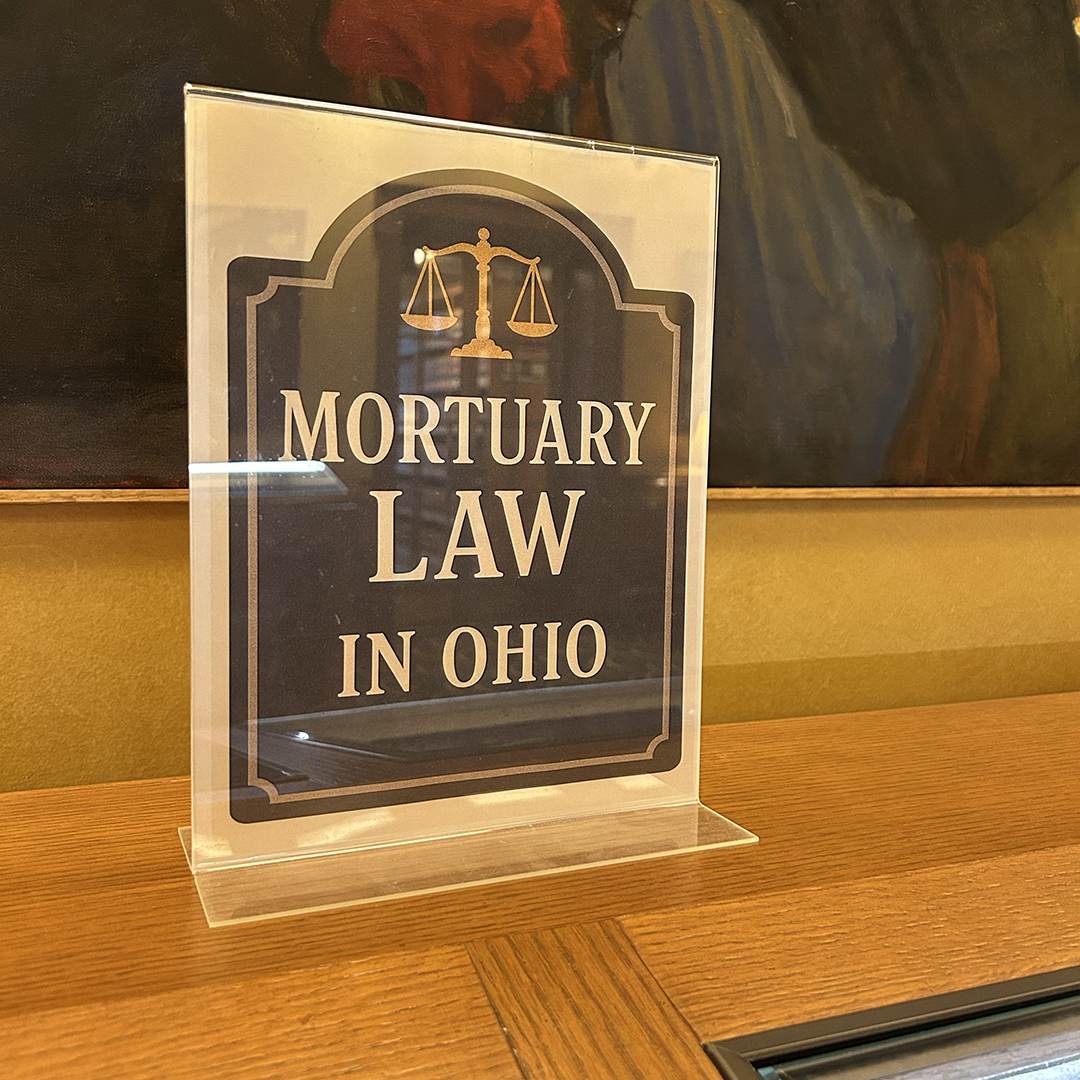Final Rites and Legal Rights: Inside Mortuary Law

The Law Library showcases mortuary law in Ohio.
Did you know you and your loved ones have legal rights after death? The Supreme Court’s Law Library explores this topic in a new display featuring mortuary law in Ohio. Mortuary laws protect consumers during the funeral process, and even limit who can handle corpses.
Corpses and Consumer Rights
When dealing with the funeral industry, you and your loved ones carry consumer rights. Planning funerals can be stressful, but consumers have a say in what goes into their final send-off.
Consumers are not mandated to buy specific packages from funeral homes for goods and services. Some funeral homes may not display lower-priced items on written lists or all of their prices online. However, they must provide this information if you ask.
The law also permits the use of alternative urns or caskets not directly offered by the funeral home. In addition, embalming is not required provided the body is cremated or buried within 48 hours. To ensure you are only charged for what you want and need, consumers can request an itemized price list and written explanations of what is required by law from funeral homes.
Regulating Those at Rest
In Ohio, there is a special board to regulate mortuary law. The Ohio Board of Embalmers and Funeral Directors was established in 1902 to protect consumers and regulate funeral and cremation services to ensure competency and ethical behavior in the field. Each of the seven members of the board is appointed by the governor.
The path to licensure in the field is rigorous. To be permitted to practice as an embalmer or funeral director in Ohio, an individual must hold a bachelor’s degree, a 12-month mortuary science qualification, a two-year apprenticeship, pass a criminal background check, pass an exam offered by the International Conference on Funeral Service Examining Board, and the Ohio Laws and Rules exam. The Board also requires 18 hours of continuing education every two years.
You can delve deeper into the fascinating facts of mortuary laws and regulations by visiting the Supreme Court’s Law Library!
